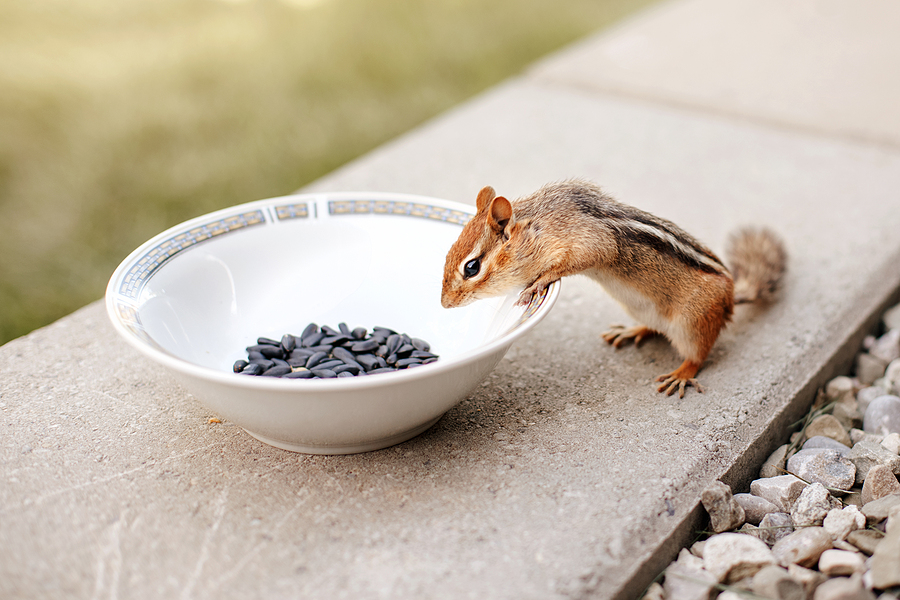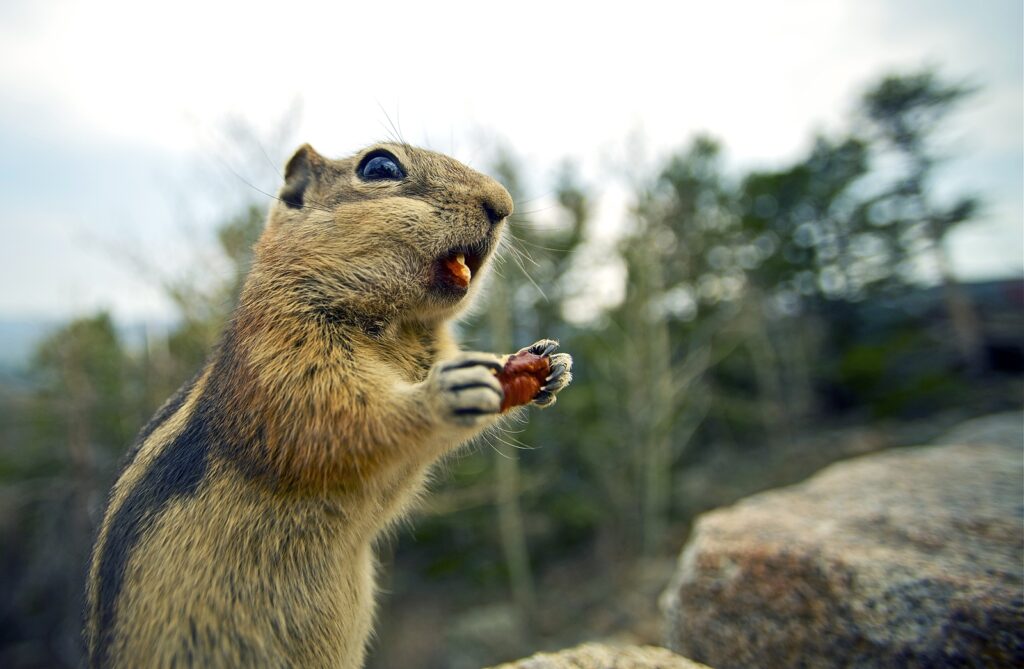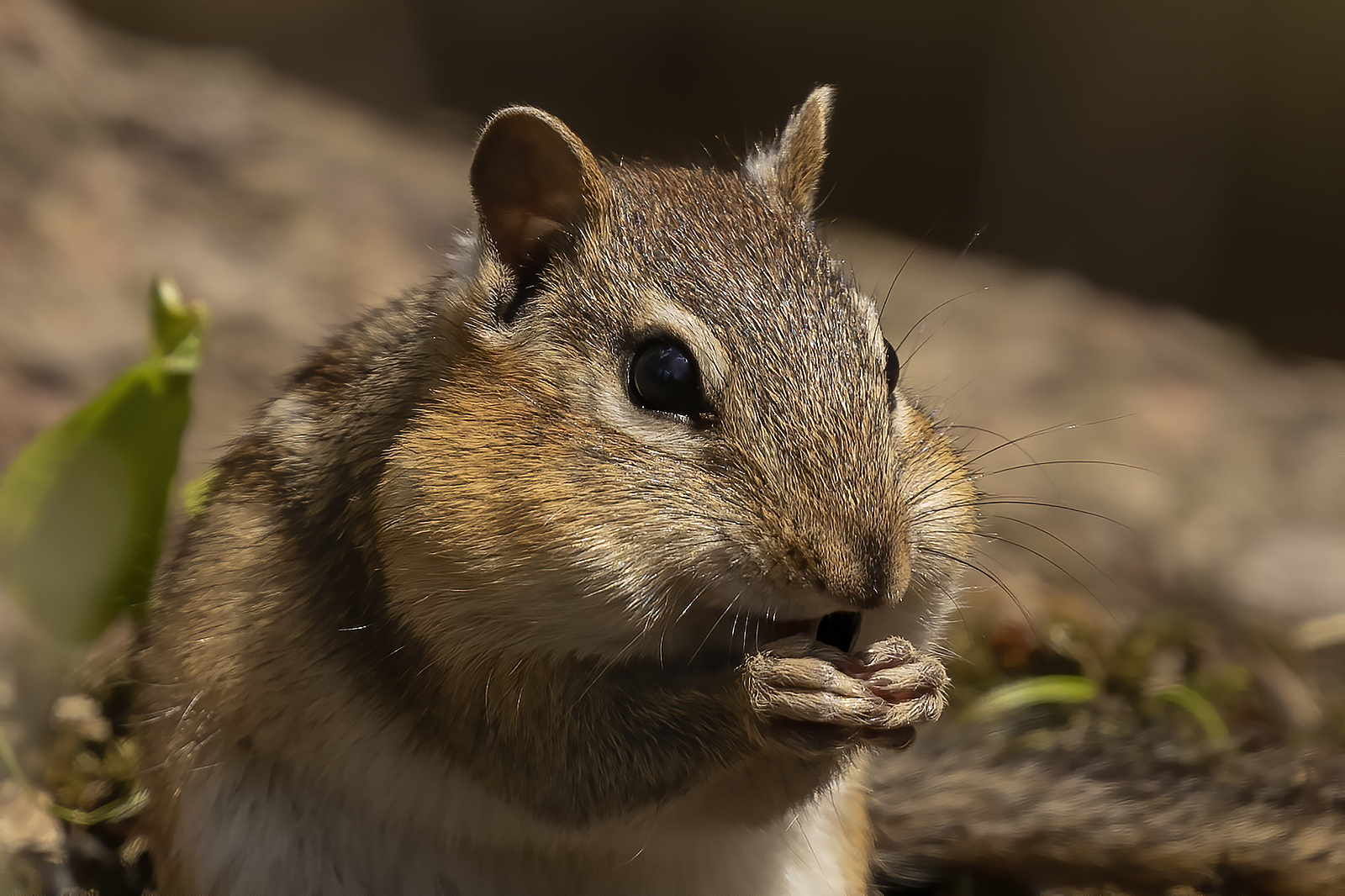Chipmunks may seem cute with their speedy scurrying and tiny striped bodies, but for homeowners and gardeners, they can quickly become a nuisance. These mini marauders can dig up bulbs, gnaw on roots, raid bird feeders, and even find their way into attics, causing damage and disruption. Not to mention, their burrows can undermine sidewalks and patios, creating safety hazards.
If you’ve been seeking ways to keep chipmunks at bay, you’re not alone. Whether they’re tearing up your garden or turning your attic into their personal playground, this guide will provide effective and humane solutions to control chipmunk activity in and around your home.

Basic Facts About Chipmunks
To effectively manage chipmunk issues, it’s essential to first understand their habits, behaviors, and needs.
Behavior and Diet
Chipmunks are industrious creatures that spend their days foraging for food and darting back to their burrows to stash their finds. Their diet primarily consists of seeds, nuts, fruits, and vegetables, although they occasionally indulge in birdseed, flowers, and even insects. This omnivorous diet contributes to their appeal to backyard gardens and bird feeders.
Habitat
These critters are typically drawn to wooded areas, gardens, and suburban neighborhoods where food and shelter are abundant. They build extensive underground burrows that can stretch several feet and often feature multiple entrances and chambers. These burrows are their refuge for sleeping, storing food, and raising offspring.
Understanding these basics lays the foundation for tackling chipmunk control with more targeted methods.
DIY Chipmunk Control Methods
The best way to address a chipmunk problem is to stop it before it starts. By making your property less appealing to these critters, you can significantly reduce the chances of infestation.
Eliminate Food Sources
- Secure Bird Feeders: Use chipmunk-proof bird feeders or place them on poles outfitted with baffles to prevent climbing.
- Clean Up Spills: Regularly sweep up spilled birdseed and nuts around feeders.
- Protect Gardens: Install mesh netting or fencing to guard vulnerable plants, vegetables, and bulbs.
Maintain Your Yard
- Remove Debris: Clear out woodpiles, overgrown shrubs, and fallen branches where chipmunks could seek shelter.
- Keep Grass Short: Trim grass and plants near your home to minimize hiding spots.
Seal Entry Points
Chipmunks in the attic or basement can be a real headache. Inspect your home for gaps or holes, particularly around vents, windows, and doors. Use caulk or hardware mesh to seal off potential entry points.
Humane Chipmunk Deterrents
If chipmunks have already made themselves at home, there are humane ways to encourage them to move elsewhere without causing harm.
Chipmunk Repellents
- Natural Repellents: Sprinkle hot pepper flakes or powdered cayenne near gardens and burrows. Chipmunks dislike the smell and taste.
- Commercial Options: Look for Eco-friendly animal repellent sprays that use ingredients like garlic, castor oil, or predator urine to repel wildlife.
- Plant-Based Barriers: Grow plants that chipmunks dislike, such as daffodils, alliums, or marigolds, to naturally deter them.
Physical Barriers
- Install Fencing: Use hardware cloth or chicken wire to create barriers around flower beds and vegetable gardens.
- Use Garden Mesh: Cover flower bulbs and small plants with mesh to prevent digging.
Motion-Activated Devices
- Sprinklers: Motion-activated sprinklers surprise chipmunks with a quick burst of water, encouraging them to avoid the area.
- Ultrasonic Devices: These emit high-frequency sounds that are unpleasant to chipmunks but undetectable to humans.
Professional Wildlife Removal and Control for Chipmunks
Sometimes, no matter how diligent you are, chipmunk infestations can become overwhelming and difficult to manage. These small creatures may seem harmless at first, but their burrowing habits can lead to damaged foundations, gardens, and even wiring.
If you’ve tried every DIY solution—like sealing entry points, yard modification, or using repellents—and the problem still persists, it may be time to call in professional help. Wildlife control experts have the tools and experience to safely and effectively handle chipmunk infestations, ensuring your home and yard are protected from further damage.
When to Call a Chipmunk Removal Service
- Persistent burrowing that damages property or gardens
- Chipmunks in the attic, basement, or walls of your home
- Large infestations that exceed your control abilities
What to Expect from Professionals
A licensed wildlife control service will assess the situation, identify the severity of the infestation, and craft a tailored plan to remove chipmunks safely and effectively. Be sure to choose a company that follows ethical and legal wildlife management practices.
Final Thoughts
Chipmunk control doesn’t have to be daunting. By understanding their habits, preventing attraction, using humane deterrents, and responsibly relocating them if necessary, you can reclaim your yard and home peacefully.
For persistent issues, don’t hesitate to seek professional guidance from a skilled chipmunk removal service. By following the steps outlined here, you can successfully manage chipmunk activity while respecting these tiny creatures and the environment they inhabit.
With the right strategies in place, you can make your home and garden yours again!
If you have any questions about local chipmunk populations around your home, we are here to help! Call Budget Animal Removal at 317-875-3099 for DNR licensed and insured chipmunk removal and control in Indianapolis and its surrounding counties. Request a free estimate or advice, today!
Related Posts:
Safely Scurrying Away: A Guide to Chipmunk Removal
Chipmunk Facts That Will Help You Protect Your Home and Garden
The Homeowner’s Guide to Chipmunk Control: Prevention, Solutions, and Security




